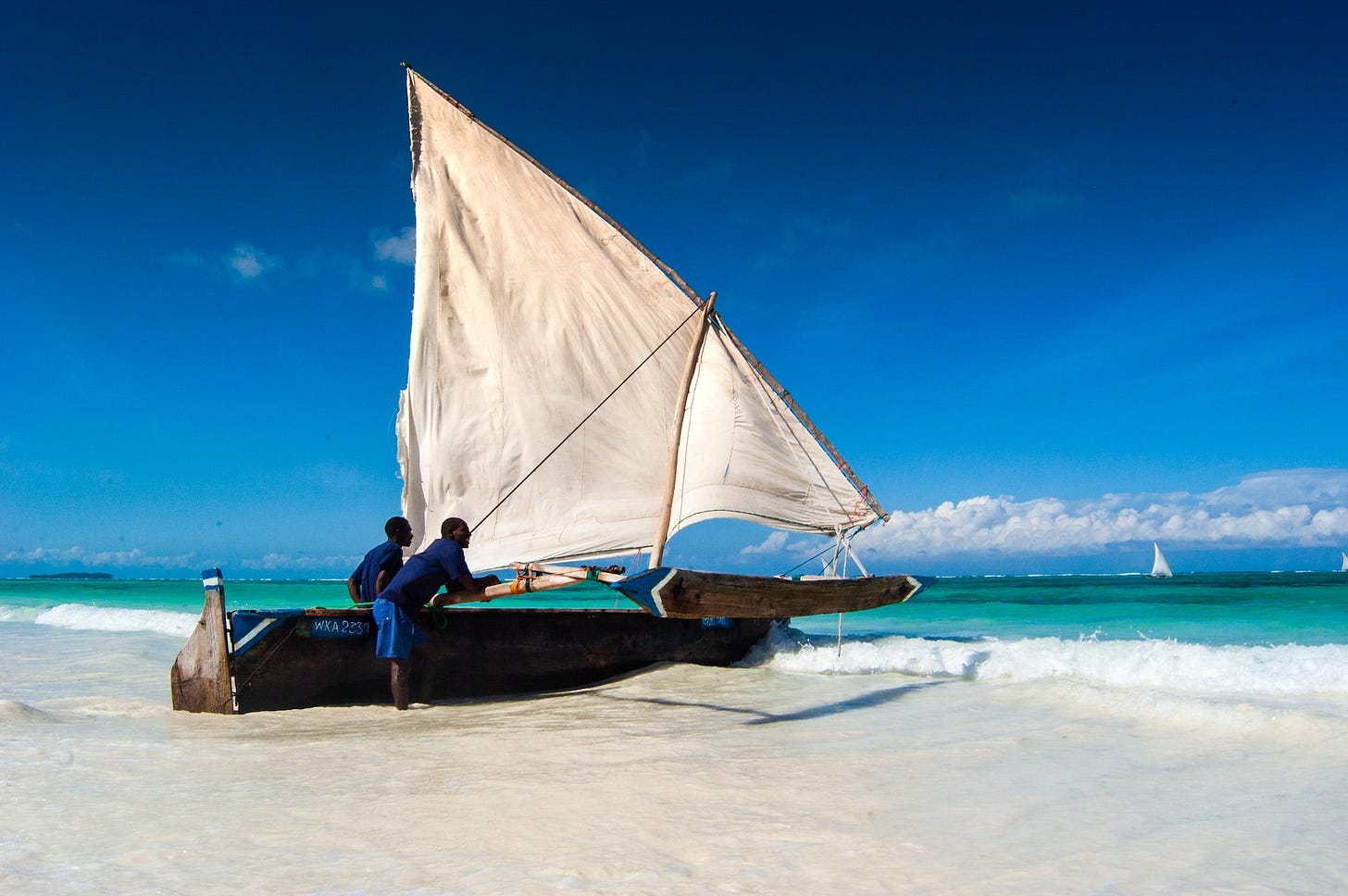Shadow of the Sun by Ryszard Kapuscinski Dialogue

A long time ago now, in grad school, I sat down for lunch in my international dorm near Columbia. At the table sat a fellow from Kenya by the name of Namema. Fast forward a couple years and this buddy of mine has become a close friend, introduced me to many friends and family and invited me off to tour his country and meet even more of his family. What a wild few years.
Since grad school Namema’s cousin Collins has become a friend. His wedding on Diani Beach outside Mombasa was cause for my most recent trip back to Kenya, a beautiful country I’ve really enjoyed traveling in and around.
As I mentioned in a previous post, I want to share more about and dialogue more about what I’m reading. Collins has been a great supporter of this and other similar efforts so when I asked him if he’d be up for demonstrating how great dialoguing about a book can be on video and what he’s reading at the moment, he opted in and said he was reading Shadow of the Sun and The Body Keeps the Score. We decided to discuss Shadow of the Sun first and maybe the Body Keeps the Score another day.
First, a bit about the author and book, since I’d never heard of it, though I’ve heard from friends it’s on some reading lists if you study abroad through NYU in Ghana. Ryszard Kapuscinski was “a Polish journalist, photographer, poet and author.” He was stationed in various parts of the world as a foreign correspondent for Polish newspapers. He worked for many and very interesting years in several countries in Africa. This book is about his travels, impressions and experiences around the continent.
Now a bit about us reading and talking about this book. I’m a white guy from Texas, Maryland and Utah. Collins is a black guy who grew up in the lands of his ancestors in Western Kenya who, later in life, transplanted for a time to New Jersey (where previous generations of my family lived). Ryszard Kapuscinski is a white guy from Poland a generation ago, so he grew up under heavy communist influences. When I started to read the book I was so curious about Collins’ motivation for reading the book and his impression of it given the writer was, one a foreigner and two a white European. Did Collins think Kapuscinski got anything right? Wrong? Did he write with a blatant bias? What stood out?
Generally I’d say Collins seemed unbothered by Kapuscinski’s race and background, read the book with a bit of a grain of salt and really enjoyed learning a lot of context and history behind some of the big news stories and big names of sub-Saharan Africa’s post independence years. We talked about the nuance and history Kapuscinski added to our understanding of the genocide in Rwanda, the civil war in Liberia in the same decade, and for me, I knew almost nothing about Idi Amin in spite of my partner’s family’s lives being heavily influenced by the historical figure.
I also wanted to think out loud about learning history from someone not a historian. Is there something good or bad about that? I think we settled on the idea that if this kind of text serves as inspiration to dive into a history, a simple entry point or invitation rather than taking it as settled fact you’re probably OK.
I asked about this because I found myself also unclear what I was even reading. I called them vignettes. But are they instead travelogues? Entertainment? Articles of a journalist? Memoir? What’s Kapuscinski’s project? Is he on a mission to educate Poles back home about Africa and Africans? He most definitely strikes a lecturing, educative tone at times. For example, when he tongue in cheek shares that when he goes home and tells people he’s been in Africa the people ask if he met any cannibals and that when he comes back to the Africa from Europe he gets the same question from young Africans about Europeans. He seems to be illustrating how unknowledgeable both groups are about one another. He also seems to be trying to remedy that divide. Invite people into learning about the other.
All in all, I appreciated Collins perspective and how much he enjoyed learning so much about neighboring countries he never realized he didn’t know certain history of. I really enjoyed hearing his unique perspective as someone who grew up in places that Kapuscinski passes through and writes about and hearing he felt Kapuscinski got some things really right, like his observations about time orientations in African cultures v European cultures. I recommend reading the book especially if you’ll be traveling to Africa sometime soon, which I also recommend. I’d just add two things. One, read it with a grain of salt, he’s not from Africa and so there’s plenty of implicit bias in what he writes. I don’t recommend it over any other book you might be inspired to read before traveling. I’d probably still recommend Things Fall Apart above all (but also keep in mind my sample size here if is quite small 😬 (and I’m working on that)).


